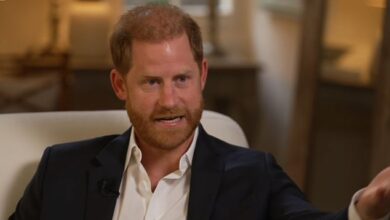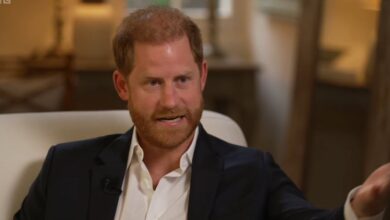Judge warns Prince Harry’s lawyer not to make any unfounded allegations in case against the Mail
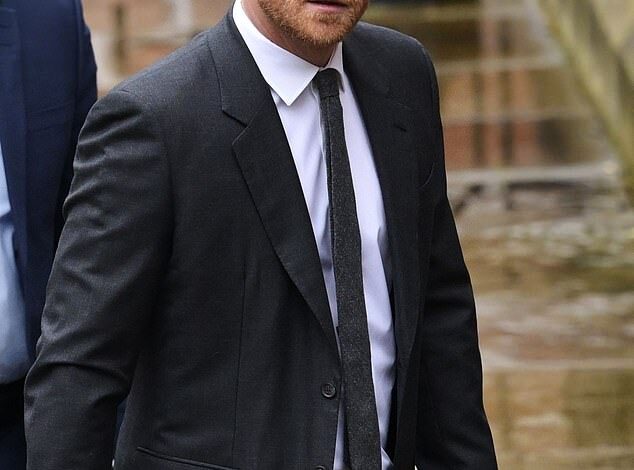
The judge in Prince Harry and Doreen Lawrence’s High Court case against the Mail warned them yesterday not to make any unfounded ‘serious allegations’.
Mr Justice Nicklin said their accusations of phone hacking, burglary and bugging needed to be backed up with ‘admissible evidence’ – or withdrawn.
The Duke of Sussex and Baroness Lawrence, a Labour peer, are among seven claimants suing the Mail’s publisher alleging that journalists hacked phones, broke into homes, tapped landlines and bugged cars – claims the publisher has described as ‘preposterous’ and untrue.
The case, which is projected to cost £38million, is still at an early stage.
Yesterday as he set a trial date for January 14, 2026, the judge said at least one of the allegations in the case ‘could be career-ending and give rise to potential criminal proceedings – so it couldn’t be more serious’.
He told the claimants’ barrister, David Sherborne, ‘as part of general case management’ that ‘when serious allegations are made, first it has to be necessary for them to be included, and secondly it has to properly and fairly reflect the underlying material’.
The judge said: ‘You understand that the rules relating to allegations like that, which are serious allegations, must be pleaded clearly and the claimants must have admissible evidence for that allegation, or reasonable grounds to suppose that evidence will be available at trial.
‘If no evidence is available at trial, it has to be withdrawn.’
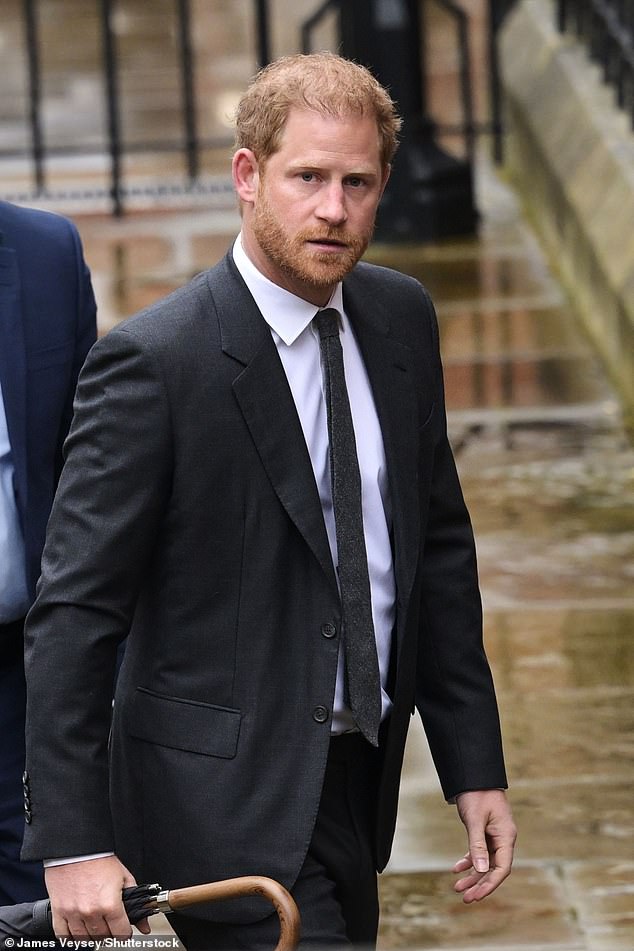
Prince Harry
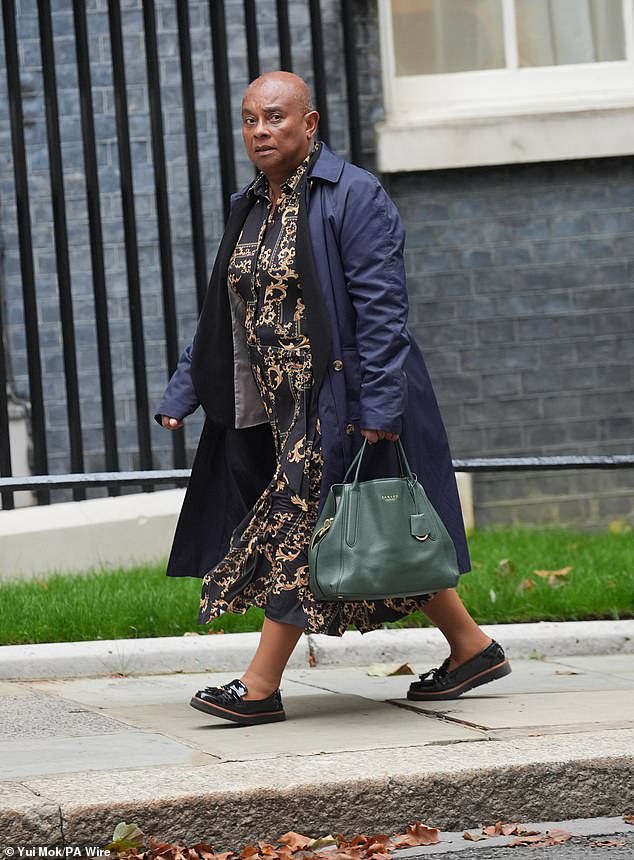
Baroness Doreen Lawrence
He said it was something the newspaper group was concerned about, and warned: ‘I want there to be no misunderstanding about the rules.’ Mr Sherborne replied: ‘I’m well aware of them.’
Associated Newspapers, which publishes the Daily Mail and The Mail on Sunday, vehemently denies all the accusations, which date back to 1993, made by the claimants, who also include Sir Elton John, David Furnish, Elizabeth Hurley, Sadie Frost and Sir Simon Hughes.
They have all cited Mail articles which they allege must have come from phone hacking or other types of unlawful information-gathering such as burglary, bugging and phone tapping.
It emerged in written submissions to the court that Baroness Lawrence launched her legal battle after Prince Harry sent her a text message in January 2022 claiming there was ‘information’ she ‘would want to know about’. A few days later she met Harry’s barrister, Mr Sherborne. But Harry’s text message is now missing, the court heard.
According to the peer’s solicitors, ‘searches were conducted of Baroness Lawrence’s messages… and the message was not found’, said Catrin Evans KC, for Associated Newspapers, in written submissions.
She said: ‘Baroness Lawrence has lost and possibly deleted an important document.’
In a ‘trenchant defence of its journalism’, the publisher submitted defences to the claims to the High Court earlier this year, explaining the legitimate sources for each article, including in one case naming a former Home Secretary as being the source of a story.
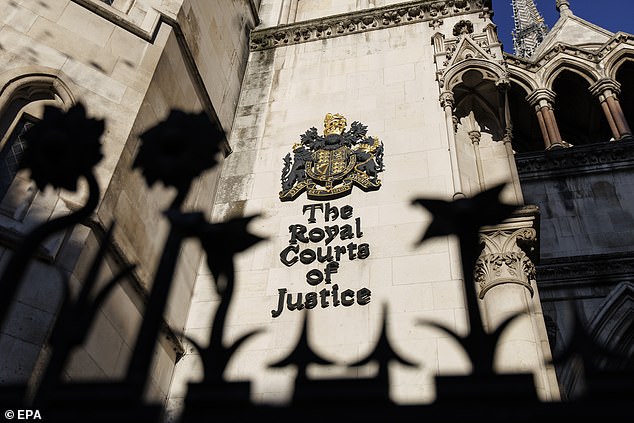
The Royal Courts of Justice, where the latest hearing took place
Prince Harry, Baroness Lawrence and the others allege that Mail executives lied to the Leveson Inquiry into Press standards in 2011 and 2012.
Yesterday, Mr Justice Nicklin told Mr Sherborne: ‘You’ll appreciate the difference between evidence which is subsequently demonstrated not to be correct and a lie.’
When he explained, ‘A lie is knowing you are telling an untruth. Telling something that you believe to be true, but later proves to be untrue…’ Mr Sherborne finished off his sentence for him by saying, ‘…is not a lie.’
The judge also warned the claimants that he would not allow them to turn their case into a ‘public inquiry’.
The next stage of the legal case involves each side ‘disclosing’ messages and documents they hold which may be relevant to the other side.
Mr Sherborne said the claimants had concerns that the newspaper would not disclose all relevant documents. He asked the court to intervene to help ensure ‘the complete universe’ of documents in the publisher’s possession were searched for any information that might help his clients.
Mr Justice Nicklin refused his application, saying he did not want the case to turn into ‘an uncontrolled public inquiry’.
He told Mr Sherborne: ‘I don’t think it’s helpful to anticipate problems that haven’t yet arisen. You are open to criticism for anticipating trouble.’
The judge added: ‘It’s very important before we leave “base camp”, we need to establish where we’re going, how we’re getting there, what equipment we’re taking. And what we are not doing is setting off on a sunny afternoon and saying, “Let’s see what we can find”.’
He told Mr Sherborne that the publisher would embark on the legal process of disclosing documents ‘properly’, adding: ‘And if they don’t, you’ll be back here telling me – and there will be consequences.’ He added: ‘The same rules apply to you.’
Yesterday was the first day of a two-day ‘case-management’ hearing. In the afternoon, Associated Newspapers lost an application to strike out an aspect of the case relating to a jailed businessman who in the early 1990s had sued The Mail on Sunday for libel and alleged that documents had been removed from his home.
Mr Sherborne characterised this episode as an example of ‘burglary’ which had been ‘admitted’ by the publisher.
The judge rebuked him by suggesting that his characterisation of the admission was ‘not accurate’, but he allowed the matter to stay in the case for the time being pending further information.
The hearing continues.


